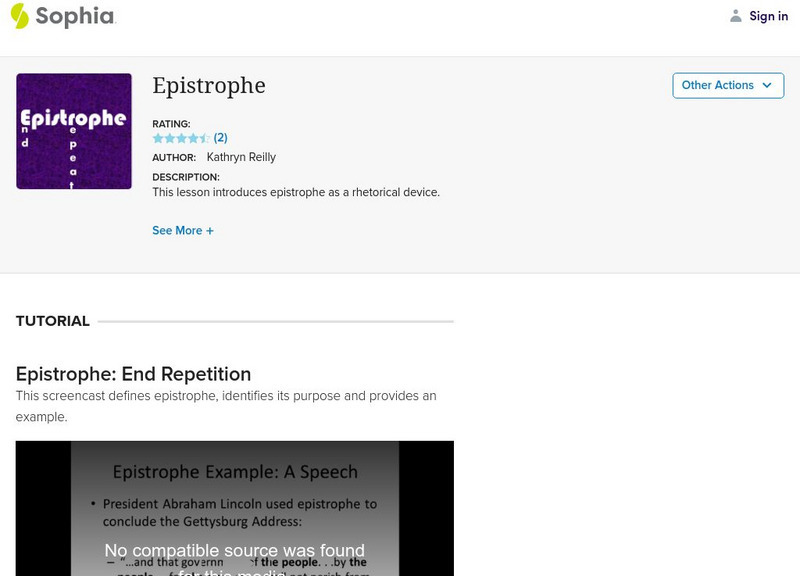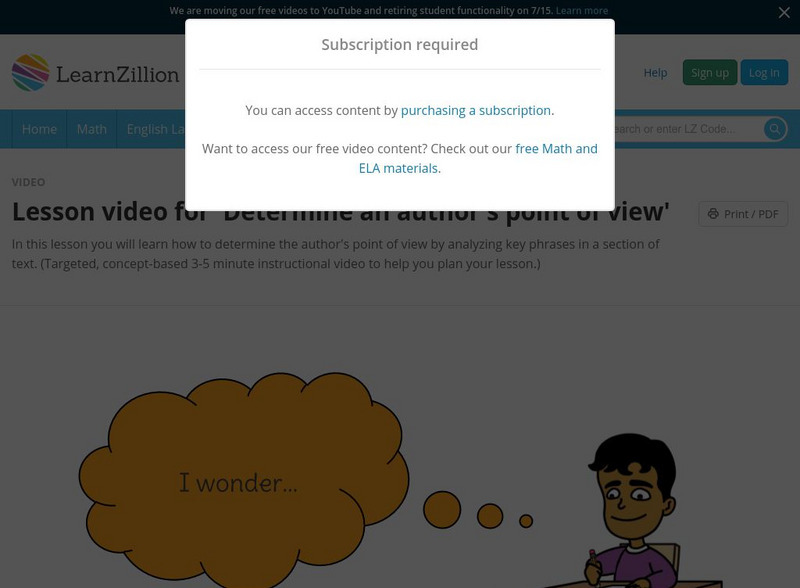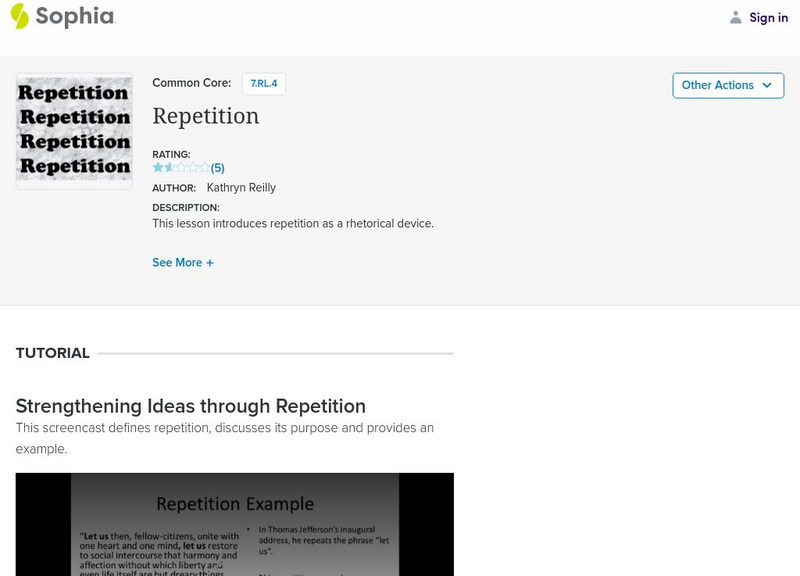Hi, what do you want to do?
The School of Life
Philosophy - Aristotle
How easy is it to change your virtues? High schoolers learn about Aristotle and his philosophical views with a short analysis video. It links the value of art, particularly drama, to one's virtues, values, friendships, and social...
TED-Ed
How to Use Rhetoric to Get What You Want
Introduce your orators to the art of persuasion, to ethos, logos, and pathos, with a short video that summarizes the key points in Aristotle's treatise on rhetoric.
Study
Parallelism: How to Write and Identify Parallel Sentences
Parallelism pitfalls are the focus of a short video that models for viewers how to craft parallel constructions using coordinating and correlative conjunctions. The transcript, as well as a short quiz to check for understanding, are...
Backstory Radio
Back Story Radio: Talk of the Nation: Oratory in America
Audio segment from BackStory Radio on the history of oratory in America in which the American History guys discuss what makes an iconic speech or speaker that will endure through the ages. Audio and transcript are provided.
Sophia Learning
Sophia: Epistrophe
This lesson introduces epistrophe as a rhetorical device. This tutorial lesson shares a short screencast with the lesson's content. [2:20]
Imagine Learning Classroom
Learn Zillion: Lesson Video for 'Determine an Author's Point of View'
In this lesson, you will learn how to determine the author's point of view by analyzing key phrases in a section of text. [5:04]
Khan Academy
Khan Academy: The Sat Reading Test: What to Expect
This video [2:08] is an overview of the SAT Reading Test. It explains that the passages include one literary text from a famed author, informational texts from science, history, etc. The sections include Information and Ideas, Rhetoric,...
PBS
Pbs: Wyoming's Native Americans: Who Are the People of the Wind River Reservation?
Learn about the treaty that established the Wind River Reservation and the two tribes that inhabit it, the Northern Arapaho and Eastern Shoshone. Included is a lesson plan and discussion guide. [4:18]
Sophia Learning
Sophia: Allusions
This lesson introduces allusions and gives explanations and examples of four different types of allusion including literary, historical, religious, and mythic. [4:36]
Sophia Learning
Sophia: Repetition: Lesson 3
This lesson introduces repetition as a rhetorical device using an excerpt from Thomas Jefferson's Inaugural Address, 1881.
Sophia Learning
Sophia: Hyperbole: Lesson 2
This lesson introduces hyperbole as a rhetorical device. It is 2 of 2 in the series titled "Hyperbole." L.11-12.5a Figures of Speech
Sophia Learning
Sophia: Parallelism
This lesson introduces parallelism as a rhetorical device. This tutorial lesson shares a short screencast [7:03] with the lesson's content.
















